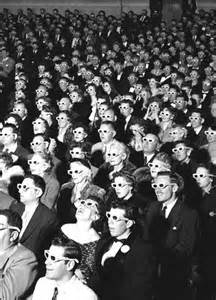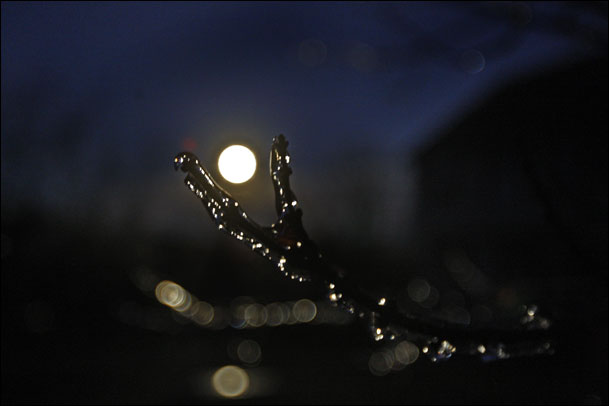Connections on the Left-Hand Path
Satanism and Knowledge
Mistress Babylon Consort explains how it’s wise to read more than the Satanic Bible.
Opposing Christian Values
An insightful, rational and heartfelt post….
Pity
By Mistress Babylon Consort, Sect of the Horned God
Pity
‘.. It preserves what is right for destruction; it defends those who have been condemned and disinherited by life; and by the abundance of the failures of all kinds which keeps it alive, it gives life itself a gloomy and questionable aspect.’ Nietzsche –The Anti-Christ
An important and all encompassing part of the Sect philosophy revolves around self-responsibility, independence, and living life to the fullest. They all go hand in hand. The destructive nature of pity, (not to be confused with empathy or sympathy) whether given or taken, opposes this. In its entirety, Nietzsche’s essay on it has always resonated on a primal or instinctive level as it is brings to light its contrary nature against ‘wanting to live’, as well as its aversion to accepting the laws of nature when our time is done. While he quite correctly states ‘Christianity is called the religion of pity’, compatible with this, and in line with any faith based theology, it can also be viewed as a slave/master relationship. The master of pity insists on supplication, lives for it and from it. Each breath depends on its continued existence through the guilt of the slave by holding them hostage through emotional and physical submission. Christianity, among many, can indeed be paralleled to the very physiology of Pity as both demand the same irrational expectations of those it holds in its clutches. Like any faith, it demands full submission.
Many of know someone who makes a vocation out of reaping pity: the hypochondriac, the professional victim or complainer, the perpetual ‘down and outer’, and those, of course, on their eternal ‘death-bed’. I once knew a woman who I quit asking ‘how she was doing’. The result was a hang dog-look mixed with anger and impatient posturing with my refusal to contribute to that which gave her life. But if I refuse to feed faith in any of its insidious guises, why would I contribute to the selfish life-line of any self-defined master willingly.
The very essence of the Sect is to foster the ‘black flame’, to encourage responsible independence. It is also to encourage critical thinking in recognizing that though the essence and mask of faith comes in many forms, its stratification always remains the same: Master and slave.
Pity is contrary in its distinction of ‘will to live’. Those who choose to live it as ‘way of life’, have already died.
The LHP Island
~Mistress Babylon Consort, Sect of the Horned God
There are times I wish I could sink the islands that compromise the LHP universe. The logical thing to do would be to fix the holes in at least one of the battered boats that line the dock, and sail from shore to shore. I’d even be willing to help repair a few, but why bother. Though that would be one step toward ‘bigger change’, you still can’t lead a horse to the pond if they are happy slurping from their ‘near autonomous’ trough. What gets me thinking like this? What’s most frustrating on the road I have chosen? It’s the holes in my own boat that leave me on the island drinking from a common well. The trigger for some time now has been reading of Aghori lifestyle and philosophy, as well as others that are similar to them. While I am an atheist, that does not mean that the ‘spiritual’ side of their practice is without meaning, that it cannot be incorporated. It can, should and will be. There are times I am ashamed when considering my own limited view of the world, for allowing myself to even consider entertaining the thought of engaging in the seedy rituals acted out on the island playground. On the island, my voice is merely anothers broken record when personal introspection is only skin deep. If I can’t smash my own taboos, it would be arrogant to think that I smash those of others and be heard with a minimum of courtesy. It’s time to go sailing.
Conditioning Techniques For Mind Control In The Right Hand Path
(An excellent read! ~MB)
By Christie Munsch
Before a discussion on any type of philosophy or doctrine, a basic knowledge of its definition or meaning should be stated. The Right Hand Path is of no exception. In eastern mysticism, any spiritual discipline embodying the principle of yang; characterized by conscious effort and striving to expand the practitioner’s potential. In such practices, enlightenment is reached by self-discipline and some forms of self-denial, such as fasting to reach altered states of mind. Also called Dakshinachara in the original Indian doctrines. While it is the opposite of the Left Hand Path, both paths require knowledge of one’s inner self. In modern western revisions, any spiritual discipline pursuing a state of being thought to be higher than the material world, such as the Christian concept of salvation. -Urban Dictionary, Online
The terms Left Hand Path and Right Hand Path refer to a division between two opposing philosophies found in the Western Esoteric Tradition. In some definitions, the Left Hand Path is equated with malicious Black Magic, and the Right Hand Path with kind and pure white magic. (Some occultists have criticized this certain definition, believing that the Left- Right division refers merely different kinds of workings, and does not necessarily connote good or bad magical actions.) -Wikipedia
It’s everywhere. It’s on your television commercials, your movie screen, the bus stop, the grocery store, and yes, even in some schools. You cannot escape it. You cannot run from it, and you sure as hell can’t reason with it. What I am talking about, is guilt. Guilt for not being what ‘they’ thought you were going to be in life; expectations from peers and parents, society and John Q Public in general. Maybe you like a type of music that is not accepted in your home growing up, so that music becomes exciting and taboo, all at the same time. For instance, you are a 16 year-old kid, and you sneak out to go see an Iron Maiden concert. Of all the emotions you will feel that night, guilt will be one of them. It may not be the most intense, but it will be there somewhere. Or you can be a young woman, knowing that your craving to be with other girls is not ‘just a fad’…..but how do you go about living one’s life happily if we cannot be who we truly are? Guilt, my friends. Guilt. It can trap us, eat us alive, and destroy us. Merriam_webster defines guilt as such: The fact of having committed a specified or implied offense or crime. Similar terms used in place of guilt, are fault – blame – sin – crime – guiltiness – culpability. The parent that works too much to provide, yet missing key moments in the child’s life. The military strategist that made the wrong critical decision and caused the death of just even one innocent person. The fact that you are healthy and alive, and your younger sibling died years ago from birth defects. You realize now what a marriage takes…..but it’s just too late……. It is easy to see how one can allow guilt to access their daily lives in such a manner that one may never recover from it’s unnecessary effects. Guilt can stem from many different things in one’s life. The disappointment of others, and it doesn’t matter who these ‘others’ are, just the fact that you know someone is disappointed in you, can cause guilt and sadness in ways that are unexplainable to a simple ‘fuck you’. The Right Hand Path follows a philosophy that adheres to there being one or many different entities that are ‘above you’, so to speak. Take for instance Christianity. Jesus and God are the all knowing, all fearing, and all healing. In Islam, all in life is done for Allah, and given praise to him throughout the day. In traditional Neopaganism, there is a God and/or Goddess that one calls upon for ceremonial needs. In Judiasm, unless one of us is Abraham, Moses or the Hebrew Prophets, chances are you are not going to see your God, either. These religions have an effect on their followers that is considered to be Right Hand Path. There is ‘something above’ them that can fix all, heal all, and end all. And to that way of life, comes the doctrines of these polytheistic (Neopagan) and monotheistic (Judiasm, Islam, Christianity) religions. In these cultures, nothing was above the God of choice. Nothing. For example, it was a move used to manipulate many into Christianity during the Crusades, as well as force those unwilling to convert. If one did not convert, death by any means appropriate was deemed necessary. Fear is another emotion that was used. Fear of death, extreme poverty or being cast out was always in the back of everyone’s heads. The rules of each doctrine and way of life were to be adhered to. No questions asked. The seeds of obedience and faith had already been planted. Over the years and centuries, it would grow and grow into a multi-million dollar business, have extremists that kill, spawn revolutions of movements………yet still have guilt and false pride as the mainstay to its core. Religions set limits. There are boundaries. In essence, morals. Morals that dictate who you are to be, what you are to do, and how you are to think. The definition of morals is as follows per Merriam-Webster: Concerned with the principles of right and wrong behavior and the goodness or badness of human character. Also, A lesson, especially one concerning what is right or prudent, that can be derived from a story, a piece of information, or an experience. Which is why guilt is so prevalent in our society today. Back in the middle ages and before the printing press, the passing of relevant and important information was mainly by either word of mouth or paper via courier. Needless to say, the word did not get around very quickly, nor quite the same story when told every time. Fast forward to 2013, and we are in a plethora of communicable devices. Everything we want to delight our senses with is easily accessible with the touch of a button. Not only can we research what else we have been missing and in some cases, denied, but it can also be used to poison the minds of weak and easily influenced individuals with no direction of any sort. And with every good, there usually will follow a bad. With the now easily availability of information regarding Left Hand Path organizations, as well as simply bucking the system and finding answers for oneself, there really is no excuse for anyone to be ignorant to how the world tends to work. (Ignorant, no, lazy……that’s another essay.) With that being said, there are many organizations that cater to the ‘Give-it-to-something-else-so-I-don’t-have-to-take-responsibility-for-it’ society. Every organized polytheistic, monotheistic and Right Hand Path oriented religion or way of life, requires you to relinquish your own power over yourself, you own free will, and hand it over to that imaginary deity…..somewhere…..out there……watching over you, and millions of others, waiting to answer your prayers and wishes. And the televangelist….to falsely and purposefully con others out of their money, is not just illegal (and immoral to them), but a work of art that apparently millions are able to be duped for. It is frowned upon if one does not tithe (give X amount of monthly income to the church). And ah! There lies more guilt for our average human being, just making it in this world. Adding to the offering plate when you cannot feed your family, leaving it in God’s hands, does not sound like a way of life that most of us would like to lead. But yet…a lot of us do. It is less traumatic to take responsibility, and much easier to lay blame on God, Jesus, Allah, any God or Goddess for rotten crops, a failed marriage, a failing grade, and/or simply just not being where you think you should be in life. Forget the fact that you went to parties in college and bombed critical exams, it doesn’t matter. Jesus will provide, and has a plan for you. To live in that sort of ignorance and denial is mind numbing at best. You would be nothing but a puppet on a string, and the ringmaster of the circus that you are a mere spec of dust in, is fake and made up. When science can prove, without a doubt, the approximate age of the earth using scientific data from tests on the earth’s crust and make up, the argument for creationism becomes invalid. Yet it lives on. How is this possible? Mass media, television, radio, books, magazines, internet, phones. There is no shortage of info on pretty much anything. And all it takes is a simple person, to make a simple decision, and live a simple life, that can cause horrid stagnation of the forward movement of humankind.
Adversarial?
By Mistress-Babylon Consort
However we want to define our path (Satanism, LHP, etc) have you ever been introduced to a ‘new’ LHP concept which punches you in the brain so hard that it made you rethink/reconstruct it, as you understand it? I most certainly did upon the introduction to the Aghori. Not that I will ever eat bung burgers over a funeral pyre, but it made me realize that most of us practice ‘safe Satanism’ within the parameters of the culture we live in. It’s easy to be adversarial when personal choice and voice is legal. Big deal. What I’m more interested in is how do we challenge ourselves and where does real personal change come from?
Trading Faiths
By Mistress Babylon Consort
Bashing religion is easy, and in of itself becomes a faith for those who make it their mantra. Any new idea or cause born of personal passion will initially and whole-heartedly encompass our entire being, but the idea that anyone would willingly stand still on their path at the embryotic stage remains disturbing. It is little more than blindly trading one faith for another. What is the point of that? The scope of this beautiful world we live in, with its often insidious underbelly, is nearly inconceivable in its vastness and we have little time to explore it. But we have to try. Question everything. To build the walls of faith around you, in all its guises, is as good as giving up.
Keep the Lights On
Submitted by Mistress-Babylon Consort
From The Objective Standard Daily Blog, an alternative view of environmentalism that questions the modern perception of sustainability. Enjoy! ~MBC
Keep the Lights On—and Shine ‘Em on Environmentalist Nonsense
 Turning out the lights for “Earth Hour” is the perfect symbol of the ultimate goal of the environmentalist movement, which is to erase industry—and thus human life—from the face of the Earth.
Turning out the lights for “Earth Hour” is the perfect symbol of the ultimate goal of the environmentalist movement, which is to erase industry—and thus human life—from the face of the Earth.
To genuine environmentalists (as against people who call themselves environmentalists but don’t understand what the movement is really about), I have nothing to say. But some well-intentioned people have been taken in by environmentalist terminology and are innocently confused about whether there is some truth to the notion that we need to be concerned about “sustainability.”
The idea behind so-called sustainability is that if we humans consume too many raw materials (or “natural resources”) we will reach a point of unsustainability, where there is not enough left for us or for future generations and thus we or they will die. Accordingly, the argument goes, we must stop people from using so many “natural resources”; we must curb our predilection to consume; we must embrace a policy of “sustainability.” Hence the various drives: We must periodically “turn out the lights” or “use less gas” or in some other way make do with less.
This notion, however, is nonsense, and we can see that it is if we identify the context that the environmentalists drop in order to get people to buy in to their nonsense.
The notion that we need a policy of “sustainability” assumes that man is merely a consumer and that raw materials are “limited.” But neither of these assumptions is true.
 Man is not merely a consumer; he is also, and more fundamentally, a thinker and a producer who can take raw materials from nature—whether dirt, berries, petroleum, or atoms—and transform them into the requirements of his life—bricks, food, energy, and weapons. And when man is free to act on his judgment, he can continually discover and implement new ways to use raw materials for his benefit.
Man is not merely a consumer; he is also, and more fundamentally, a thinker and a producer who can take raw materials from nature—whether dirt, berries, petroleum, or atoms—and transform them into the requirements of his life—bricks, food, energy, and weapons. And when man is free to act on his judgment, he can continually discover and implement new ways to use raw materials for his benefit.
Nor are raw materials “limited”—at least not in any meaningful sense of the term. Of course there is a finite amount of aluminum, petroleum, and the like in the earth. But Earth is nothing but raw materials—of which we’ve tapped only a minuscule fraction of a infinitesimal portion—and the rest of the universe is nothing but a whole lot more. Petroleum used to be just goo you didn’t want to get on your feet or crops; now man uses it to fuel industrial civilization, to make heart valves, to manufacture Kindles, and so on. Sand used to be good for nothing but sunbathing and sandcastles; now man uses it to make eyeglasses and fiber optic cables. Uranium used to be just a toxic metal you’d want nothing to do with; now man uses it to create inexpensive electricity and terrorist-killing bombs. And on and on. There is no telling what uses man will discover for other raw materials in the future.
Man’s rational and productive nature, combined with the fact that raw materials are for all intents and purposes unlimited, makes it impossible for man to run out of resources—providing that he is free to think and act on his judgment, which means: providing that he lives under the social system of capitalism.
Under genuine capitalism (which has yet to exist), all property is privately owned, and the government’s sole purpose is to protect individual rights, including property rights. Under capitalism, property owners are responsible for their property, for better or worse.
People who have worked to acquire property generally want to maintain or enhance its value; they typically want to increase their wealth; and they tend to be rational about how they use and develop their property. Accordingly, property owners usually work to sustain or improve their resources, whether farms, lakes, campgrounds, ski resorts, or oil rigs. And they generally plan at some point to pass their property along to their relatives, friends, or associates whom they think will use it rationally too.
 Of course some people choose not to be rational and not to enhance or even maintain their property. But this is not a problem for anyone but them. If someone fishes his lake “dry,” or cuts down all the trees on his tree farm and fails to plant more, or the like, he will suffer the consequences of his irrationality. If he lets his property go to waste, then, when he goes bankrupt or dies, someone else will have an opportunity to make the property a value again. And if a property owner violate others’ rights in some way—say, by contaminating his neighbor’s drinking water—he can be held accountable in a court of law.
Of course some people choose not to be rational and not to enhance or even maintain their property. But this is not a problem for anyone but them. If someone fishes his lake “dry,” or cuts down all the trees on his tree farm and fails to plant more, or the like, he will suffer the consequences of his irrationality. If he lets his property go to waste, then, when he goes bankrupt or dies, someone else will have an opportunity to make the property a value again. And if a property owner violate others’ rights in some way—say, by contaminating his neighbor’s drinking water—he can be held accountable in a court of law.
The only thing we need to sustain is the freedom to act on our judgment—which includes the freedom to use our property as we see fit. As long as we are free, we can keep the lights on and continue figuring out how to make them cheaper and brighter.
This fact upsets some people. But so what?
‘Going’ Green?
Submitted by Mistress-Babylon Consort
By Joe English
Daring to date myself, this post certainly brought back memories of my mother hanging laundry, in a one T.V, computerless, manual hand-blender, microwaves weren’t invented yet, and cellphones were only on Star Trek, household. Enjoy.
Going Green
Checking out at the store, the young cashier suggested to the older woman, that she should bring her own grocery bags because plastic bags weren’t good for the environment.
The woman apologized and explained, “We didn’t have this green thing back in my earlier days.” The young clerk responded, “That’s our problem today. Your generation did not care enough to save our environment f or future generations.”
She was right — our generation didn’t have the green thing in its day.
Back then, we returned milk bottles, soda bottles and beer bottles to the store. The store sent them back to the plant to be washed and sterilized and refilled, so it could use the same bottles over and over. So they really were truly recycled. But we didn’t have the green thing back in our day.
Grocery stores bagged our groceries in brown paper bags, that we reused for numerous things, most memorable besides household garbage bags, was the use of brown paper bags as book covers for our schoolbooks. This was to ensure that public property, (the books provided for our use by the school) was not defaced by our scribbling’s. Then we were able to personalize our books on the brown paper bags. But too bad we didn’t do the green thing back then.
We walked up stairs, because we didn’t have an escalator in every store and office building. We walked to the grocery store and didn’t climb into a 300-horsepower machine every time we had to go two blocks. But she was right. We didn’t have the green thing in our day.
Back then, we washed the baby’s diapers because we didn’t have the throwaway kind. We dried clothes on a line, not in an energy-gobbling machine burning up 220 volts — wind and solar power really did dry our clothes back in our early days. Kids got hand-me-down clothes from their brothers or sisters, not always brand-new clothing. But that young lady is right; we didn’t have the green thing back in our day.
Back then, we had one TV, or radio, in the house — not a TV in every room. And the TV had a small screen the size of a handkerchief (remember them?), not a screen the size of the state of Montana.
In the kitchen, we blended and stirred by hand because we didn’t have electric machines to do everything for us. When we packaged a fragile item to send in the mail, we used wadded up old newspapers to cushion it, not Styrofoam or plastic bubble wrap.
Back then, we didn’t fire up an engine and burn gasoline just to cut the lawn. We used a push mower that ran on human power. We exercised by working so we didn’t need to go to a health club to run on treadmills that operate on electricity. But she’s right; we didn’t have the green thing back then.
We drank from a fountain when we were thirsty instead of using a cup or a plastic bottle every time we had a drink of water. We refilled writing pens with ink instead of buying a new pen, and we replaced the razor blades in a razor instead of throwing away the whole razor just because the blade got dull. But we didn’t have the green thing back then.
Back then, people took the streetcar or a bus and kids rode their bikes to school or walked instead of turning their moms into a 24-hour taxi service. We had one electrical outlet in a room, not an entire bank of sockets to power a dozen appliances. And we didn’t need a computerized gadget to receive a signal beamed from satellites 23,000 miles out in space in order to find the nearest burger joint.
But isn’t it sad the current generation laments how wasteful we old folks were just because we didn’t have the green thing back then?
Please forward this on to another selfish old person who needs a lesson in conservation from a smart-ass young person. — with Joe English












